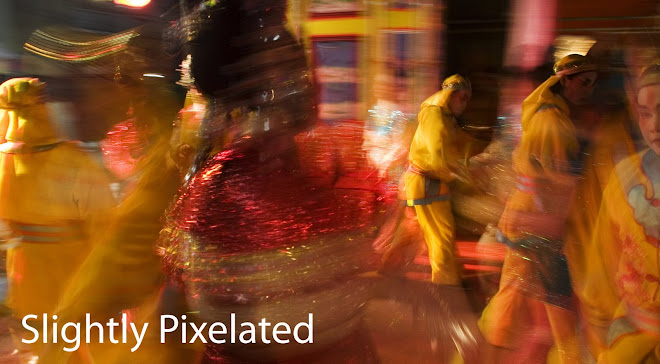Thailand's democracy, creaking and groaning under the weight of popular frustration, gnawed at by the self-interest and greed of its political masters, is again hovering dangerously close to the abyss.
This evening tens of thousands of red shirted protesters throng the streets which surround government house in the capital Bangkok, the official seat of government in this Buddhist Kingdom.
Milling happily. Laughing and shouting. The protesters are euphoric, determined, pumped up with the thrill of their collective power. Whipped up by a parade of fiery speakers, they have the confidence of an unstoppable wave of humanity that will literally sweep the government of Abhisit Vejajiva from power.
Ahead of them lies a path of uncertainty that could well be stained with the blood of Thai pitted against Thai. Perhaps it will involve ordinary Thais battling each other in the streets. Or will it end crushed under the heel of a military boot? In a hail of gunfire? Only one outcome seems all but inevitable: the current government will fall, triggering new elections and more instability.
That Thailand's political process, once held up as a paragon of democratic success in the region, should be reduced to such a pitiful charade is a tragic and, of course, unnecessary reality. It is in large part the product of a narrow elite power struggle that may determine the course of this nation for years, perhaps decades, to come.
Thailand's intense political drama has now come full circle. The yellow shirts, aligned with Thailand's traditional elite, who once occupied these same streets, whose leaders railed against the incumbent leader with the same fury, have been replaced by their red shirted opponents. Only the costumes have changed. The fury, the indignation, the absolute conviction of the reds is a mirror image of their yellow counterparts.
Another emotion shared equally by both sides is that of hatred. It is hard to find a precedent in this 'land of smiles' for the vicious invective that has poured from the microphones of the leaders of the protest movements on both sides of the divide.
It all began innocently enough. Thaksin Shinawatra, the telecoms billionaire who won a landslide in 2001, promised a new kind of politics. He was a symbol of hope in post-crisis Thailand that seemed to embody the can-do savvy and dynamism of the business class who had become the heroes of the economic boom that propelled Thailand into the ranks of the developed world.
While Thaksin's CEO style originally resonated comfortably with the traditional elite, his populist political tactics soon began to rankle. Unlike any politician before him, Thaksin played the demographic card, turning his attention to the political constituency of the countryside who naturally constituted the majority. He had come up with a simple formula for democratic success: offer attractive policies to the rural majority and then deliver.
Thaksin quickly transformed his political capital into raw power. He initiated a war on drugs that saw more than 2,000 alleged suspects gunned down without any due process. He began to muzzle a hitherto relatively free press and began loading the independent institutions designed to balance his power with his own supporters.
Despite these excesses and some fairly convincing evidence of corruption, it was Thaksin's popularity at the ballot box that ultimately triggered his ouster and the current crisis. Thaksin had become a threat to the established order.
Thaksin, like no-one before him, opened the Pandora's box of a democratic Thailand where the majority might actually freely choose their leaders; as opposed to selling their votes in the venal political dance that had hitherto become the embarassing reality of Thailand's electoral process.
Today, Thaksin, who was ousted in by a military coup in September 2006 and is currently living in exile, has become an emblem for the divisions which are tearing this nation. To his red shirted supporters, typically rural folk, Thaksin has become a hero and a martyr; who was sacrificed to protect the interests of a minority elite. To his enemies, the yellows, Thaksin is challenging the very fabric of Thailand's social and political order, threatening to upend a system that has always been unquestioningly controlled from the top down.
The reality, sadly, is that on both sides of Thailand's political boxing ring are leaders whose objectives go no further than victory for their respective clique's interests. On neither side is there a leader who offers to go beyond the deep divisions that are the fruit of Thailand's long-standing social, political and economic inequality.
Without a leader able to rise above partisan interests, to envision and communicate a realistic platform for reform that balances the forces of inequality, Thailand will continue to be buffeted by instability, living under the shadow of a significant break down of civil order.
In the time it has taken to write this short piece, the numbers of red shirted protesters has already swelled by many thousands. Forecasts suggest that more than 100,000 could march tomorrow. It promises to be a long, hot summer in Bangkok.

No comments:
Post a Comment